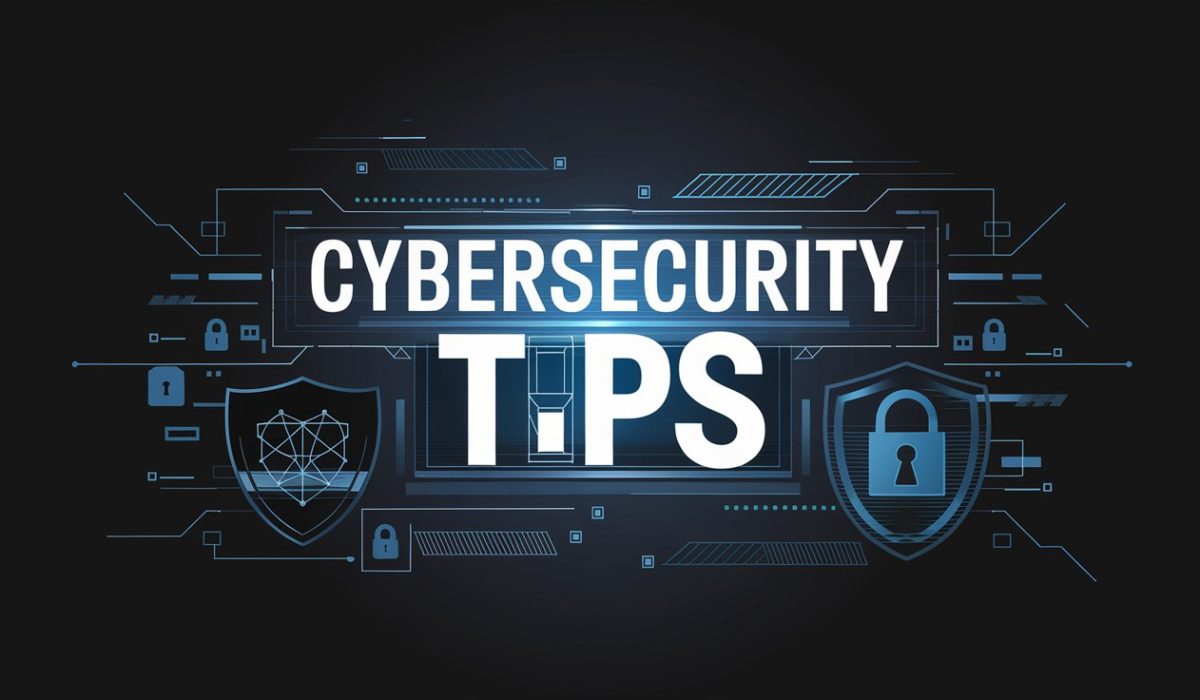Cybersecurity Tips: How to Protect Yourself Online
In today’s digital age, cybersecurity is more important than ever. With cyber threats constantly evolving, safeguarding your personal and financial information is crucial. Here are some practical cybersecurity tips to help you stay safe online.
1. Use Strong Passwords
A strong password is your first line of defense. Avoid using easily guessable information like birthdays or names. Instead, create complex passwords with a combination of upper and lowercase letters, numbers, and special characters. Additionally, consider using a password manager to store and generate unique passwords for each of your accounts.
2. Enable Two-Factor Authentication (2FA)
While having a strong password is essential, it may not be enough. That’s where two-factor authentication (2FA) comes in. This security measure adds an extra layer of protection by requiring you to verify your identity through a second method, such as a text message or authentication app. Even if someone gets your password, 2FA can prevent unauthorized access.
3. Be Cautious of Phishing Scams
Phishing scams are one of the most common cyber threats. Cybercriminals use fake emails, messages, or websites to trick you into providing sensitive information. Always double-check the sender’s address, avoid clicking on suspicious links, and be wary of unsolicited requests for personal data. If something feels off, it’s better to stay cautious.
4. Keep Your Software Updated
Software updates often contain security patches that address vulnerabilities. Hackers are quick to exploit outdated software, making it essential to keep your operating systems, browsers, and apps updated. Enable automatic updates whenever possible to ensure you’re always running the latest, most secure version.
5. Use a VPN When on Public Wi-Fi
Public Wi-Fi networks are convenient but can be risky. Hackers can intercept data transmitted over these networks, making it easy for them to steal sensitive information. To protect yourself, use a Virtual Private Network (VPN) when accessing public Wi-Fi. A VPN encrypts your data, making it much harder for cybercriminals to spy on your activities.
6. Backup Your Data Regularly
Ransomware attacks are on the rise, where hackers encrypt your files and demand payment to unlock them. One way to safeguard against this threat is by regularly backing up your data. Whether you use an external hard drive or cloud storage, having a backup ensures you won’t lose important files even if your system is compromised.
7. Be Careful What You Share on Social Media
Oversharing personal information on social media can put you at risk. Cybercriminals often gather details from your profiles to impersonate you or guess your passwords. Therefore, limit the amount of personal information you share online and review your privacy settings to ensure only trusted individuals can access your posts.
8. Secure Your Devices with Antivirus Software
Antivirus software plays a crucial role in defending your devices from malware, viruses, and other cyber threats. Ensure that your antivirus software is up to date and performs regular scans to detect and remove any malicious files. Moreover, consider adding firewall protection to monitor and block potentially harmful traffic.
9. Watch Out for Fake Apps and Downloads
Cybercriminals often disguise malware as legitimate apps or software downloads. Before downloading anything, make sure it’s from a trusted source. Check reviews and ratings, and avoid downloading apps from third-party websites. This simple step can prevent malicious software from infecting your devices.
10. Log Out of Accounts When Done
After finishing online activities, especially on shared or public devices, always log out of your accounts. This simple action ensures that no one can access your information if you forget to close the browser or app.
Conclusion
Staying safe online requires vigilance and proactive measures. By using strong passwords, enabling two-factor authentication, and keeping your software updated, you significantly reduce your risk of falling victim to cyberattacks. Remember, cybersecurity is an ongoing process, so stay informed about the latest threats and continue to enhance your online protection.
